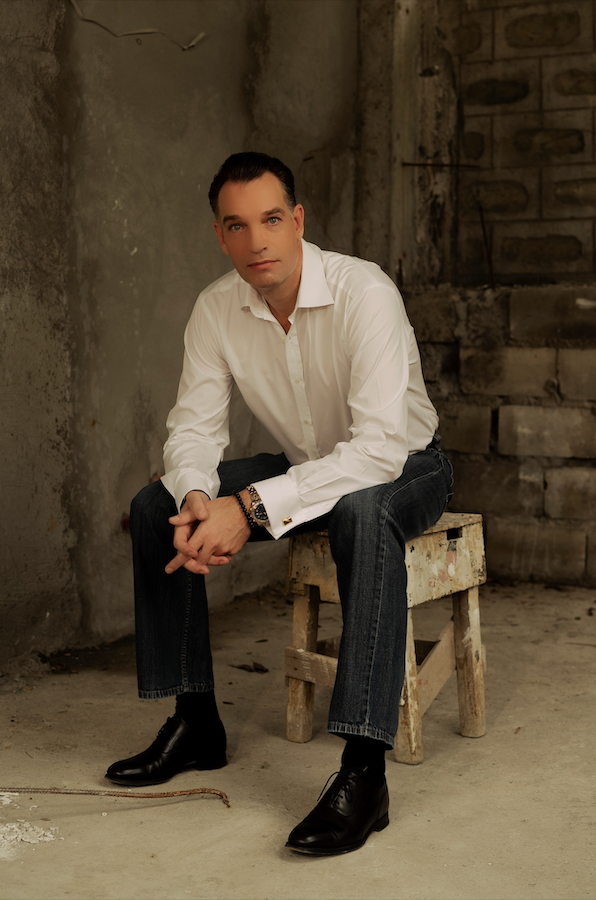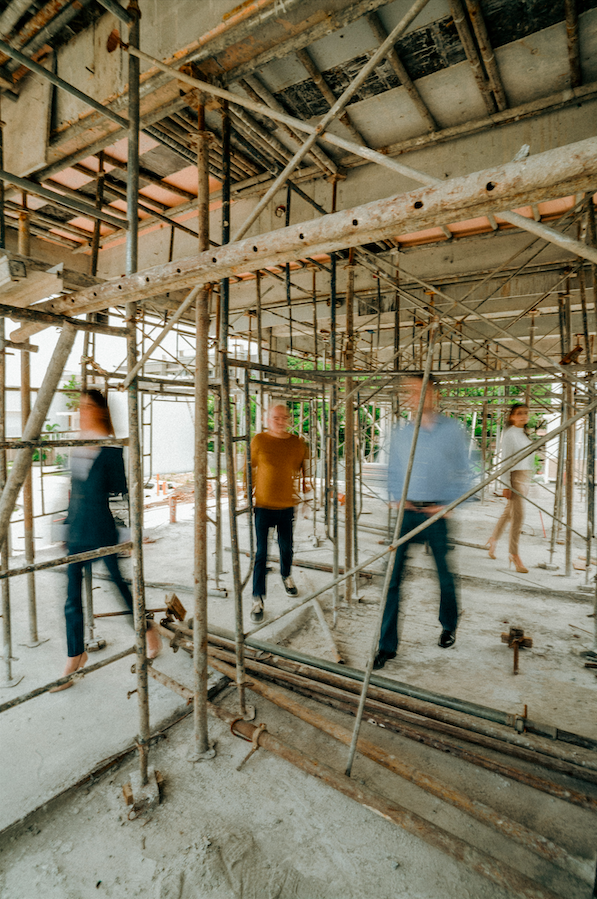Balance Sheet: A conversation with VCDC CFO Ralph Maurice van Miert

Photo by Artu Nepomuceno
It was a search for a more balanced life that led Dutch national Ralph Maurice van Miert back to the Philippines after a fast-paced career in London. Straight after graduating from the European Business School in London in 1999 with a BA Hons degree in Finance and Economics, he started his career at Bankers Trust, and then went on to work for various equity sales firms in London, including Dresdner Kleinwort Securities, Westlb Ag, Rabobank Securities and Credit Agricole CIB. In 2010, he moved to the Philippines, a country he first became acquainted with as a university intern. He struck up a friendship with Victor Consunji and two years later accepted his offer to join Victor Consunji Development Corporation (VCDC) as Chief Financial Officer, a position he still holds. He talks about finding that work-life balance in the Philippines, and preparing for a post-pandemic world.
What does being a CFO at VCDC entail?
My job entails building financial models, reconciling income and expenses, preparing financial statements, tracking VCDC’s cashflow, project analysis, financial planning, securing project financing and analyzing financial strengths and weaknesses. My job also requires me to work closely with our construction team, purchasing department, HR and sales team to ensure targets and budgets are met and that VCDC procures the highest quality materials that meet our exclusive high end product standards.
My father taught my three brothers and myself from a very young age to always work hard and do your best in whatever you pursue and I have applied that in life and work.
You’ve been here for over ten years. What was the biggest culture shock you encountered, both in business and everyday life, when you moved here?
I did several summer internships here in the Philippines during my university career as that was part of the curriculum. That allowed me to experience and learn the culture at an early stage. However, that being said, coming from a high-paced industry and being European, I tended to be very direct and to the point, which doesn’t match the culture here in the Philippines. I had to adjust, learn and accept that things work differently here, and also that everything moves at a slower pace. People here like to have some small talk before a meeting which I quite enjoy, as it brings a personal aspect to the meetings which lacked in my previous job. In the Philippines it’s all about building relationships and connections and becoming comfortable with each other before things progress and develop on the business front. In my everyday life I found it very easy to blend in as the people are so friendly, accommodating and hospitable. I have made some great friends here over the years and thoroughly enjoy my social and work life.
What were the aspects of your working life in London that made you feel you needed to find balance?
My day would start at 5:30am, when I would get ready to go to work to be in the office by 7:00 am. We would have morning meetings to discuss the investment ideas for the day with the equity analysts and equity sales colleagues before the stock market opened at 8am. Throughout the day, I would be on the phone with my clients – even breakfast and lunch I would eat at my desk! Once the market closed, there would be client meetings/entertainment to build closer relationships for future business.
The job was very intense and high paced; in addition to this, I travelled with our analysts every two weeks to the Benelux region to pitch investment ideas to our clients. This would leave very little time for anything else like family life and leisure time, so the balance was very much geared towards work only. It was very much all work and no play. After working in London for nine years, I felt it was time for a lifestyle change.
What were the most significant learnings from your London career, and how have you applied them to your work in the Philippines?
Having a background in equity sales whereby I had to be able to analyze company balance sheets, income statements, future prospects in the industry that they were operating in, allowed me to apply those skills to my current role as Chief Finance Officer at VCDC. In equity sales we are always expected to get the best prices for our clients, and I have instilled that onto our purchasing department in order to get the best prices for all our construction materials and thereby improving our overall profit margins. Equity sales requires a very strong work ethic and perseverance, and I try to project that onto all our staff as I believe it will improve their work output and ultimately the company as a whole. I spend most of my time reconciling income and expenses, preparing financial statements, tracking VCDC’s cashflow, project analysis, financial planning and creating spreadsheets which are all skills I learned during my career in London.

Photo by Artu Nepomuceno
How has the construction industry fared during the pandemic?
The construction sector being one of the key sectors in the Philippine economy has seen a significant contraction and this is largely due to the disruption caused by the global coronavirus pandemic. It required the construction companies to face and overcome new challenges from suspended operations, shortage of construction workers due to lack of work and leaving Manila, strain on cashflow due to project delays, material shortages and new Covid health and safety work guidelines. I believe the construction sector has risen to the challenge in this new normal and are well equipped now to face the continuing challenges head on.
How do you see the industry recovering in the light of the serious economic setbacks the country continues to suffer because of the prolonged lockdowns?
As in all things like the Asian financial crises, stock market crashes or recessions. we always bounce back and come out stronger. Not just in the Philippines, but globally as well. I believe the same will happen to the construction sector. Sure, sales have suffered due to people losing their jobs or businesses and projects having been delayed or cancelled, but once the economy starts to recover that too will correct itself. One of the immediate issues faced by the construction sector are the very steep rises in raw material costs as this will affect the overall margins and profitability going forward, but this too will balance itself out. The banks have a very important role in the process by promoting and stimulating the home loan market and assisting businesses in these difficult times. In VCDC’s case we focus mainly on exclusive high end house and lot developments in prime locations and given that target market we have been able to maintain stable sales throughout the pandemic. As with many construction companies we have a very healthy pipeline of development projects that are ready to be launched as the economy starts to recover and this will drive the construction sector back to the growth levels we experienced before the pandemic.
What immediate work adjustments did you make to adapt to the lockdowns and work-from-home (WFH)?
When the first full lockdown was announced, we made sure that all our admin staff were provided with an iPad or laptop so that everyone could continue their work responsibilities and join our weekly Zoom meetings. Our other immediate concerns were our construction workers as they wouldn’t be receiving an income, so VCDC decided to continue paying their wages throughout the lockdown period, which meant that they would still be able to put food on the table for their families. This decision ensured that our construction workers would remain on standby and ready to mobilize when the lockdown ended. We also immediately started organizing on site rapid testing, quarantine facilities and financial assistance to employees when needed.
How do you remain connected to and engaged with both your employees and your clients?
We ensured that all our admin staff are fully available online to ensure a smooth continuation of daily operations and able to hold regular Zoom meetings to discuss pressing issues, and also allow some time to discuss how everyone is doing personally during this pandemic. We also set up a skeleton attendance system so every department has at least one person present in the office. The majority of our clients prefer to meet via Zoom although for unit viewings and unit turnovers they would have to attend in person, and we ensure that all health and safety protocols are in place so the clients feel safe and comfortable.
How did it affect your family?
I think the kids are the most affected during this pandemic as they don’t get to out physically anymore. They have no opportunities to see their classmates or friends and have very limited social interactions with their peers. We are blessed as we have a garden and amazing facilities in our village that the kids can enjoy and also have healthy outdoor time.
What are you most longing to do once we return to some semblance of normal?
I think this pandemic has taught us all a new sense of appreciation for everything that we were able to do and enjoy before the pandemic. Being able to just go out for a nice meal with the kids without restrictions is something I am looking forward to. I love traveling and going to the beautiful islands and beaches that the Philippines has to offer so that would definitely be high up on my list. I haven’t seen my family back home in the Netherlands for a long time and being able to visit them again at some point would be fantastic.
ADVT.














